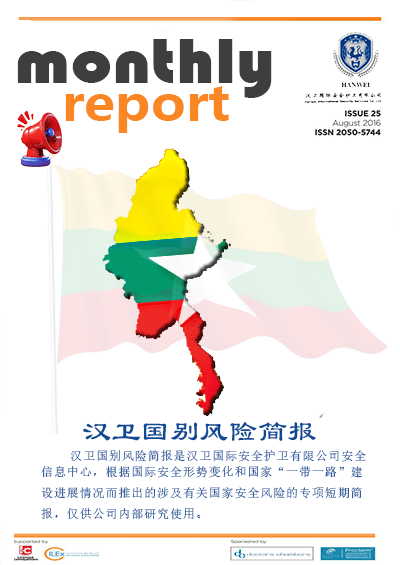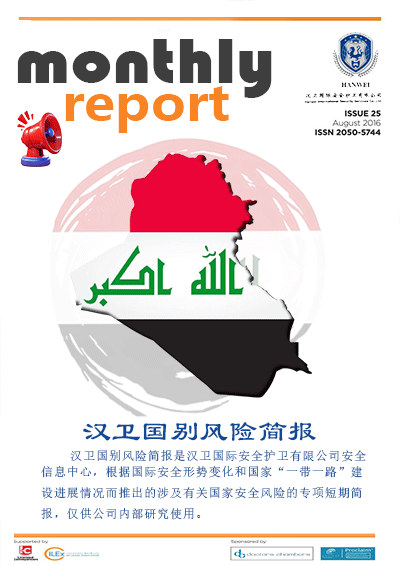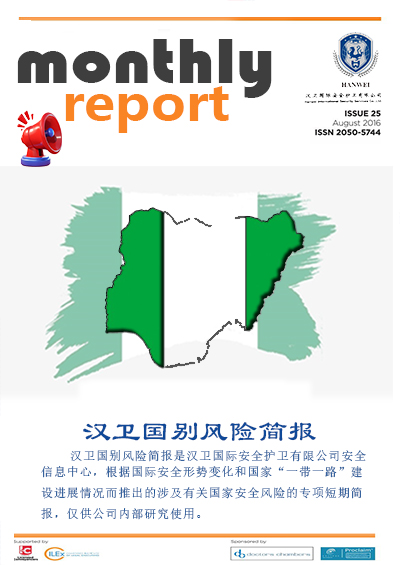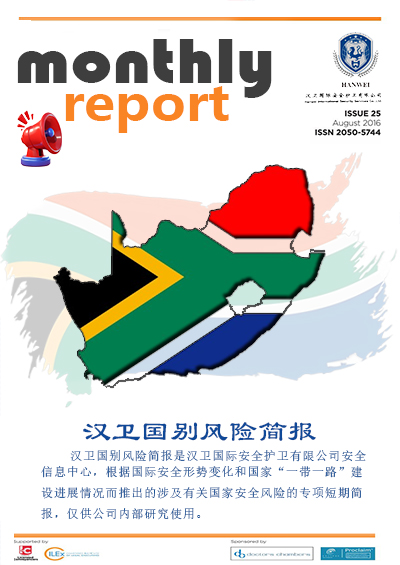Iraq Security Situation Review August
Researcher No. 006
According to monitoring reports from Hanwei International's security officers stationed in Iraq and related media reports, representative security incidents occurring in Iraq this month mainly included armed conflicts/armed attacks, protest demonstrations, drone attacks, etc. Hanwei International analysis suggests that the Middle East situation has escalated again, with multiple countries embroiled in local armed conflicts, and Iraq's border areas facing severe crises. Iran and its allies are planning retaliation for Israel's assassination attempts, while Israel maintains a tough stance, and many countries are urging their citizens to leave Lebanon. Turkey continues to target Kurdistan Workers' Party (PKK) strongholds in Syria and northern Iraq, while military conflicts erupt within Syria. Politically, Iraq faces ongoing disputes this month, with newly established local governments in Kirkuk and Diyala encountering governance crises; economically, power shortages and corporate operational security have drawn widespread attention.
First, newly established local governments in Kirkuk and Diyala face governance crises—can Sunnis push for autonomy?On August 1, during the Diyala Provincial Council meeting, member Omar Korawi was elected as council chairman, with Adnan Jayel Tamimi serving as vice chairman. However, protests erupted outside the meeting venue, with most protesters being members of the Bani Tamim tribe, Diyala's major tribe. On August 10, Arab member Mohammed Ibrahim Hafez was elected chairman of the Kirkuk Provincial Council, while Patriotic Union of Kurdistan member Rebwar Taha was elected governor. The meeting was controversial as it was held with many members from different parties absent. Against a backdrop of sectarian tensions and escalating political divisions, an important Sunni leader in Iraq is pushing for the establishment of a Sunni autonomous region.
Second, Iraq's national power system neared collapse this month, with external security threats severely impacting corporate operational safety.Iraq has long faced power shortages. On August 10, power generation dropped from 29,000 MW to 14,000 MW, marking the fourth large-scale collapse of Iraq's national power system in five years. On August 19, Pearl Petroleum, developer of the Khor Mor gas field project in Iraq's Kurdistan region, terminated its gas expansion project contract with Canadian company Enerflex, citing numerous "performance issues" that caused significant project delays. However, Enerflex disputed this, stating that a fatal drone attack on the project site on April 26 severely impacted operational security.
Third, the Middle East situation escalated further, with Iraq's border areas facing severe crises.On August 1, senior Iranian officials met with allied representatives from Lebanon, Yemen, and Iraq in Tehran to discuss retaliation for Israel's assassination of Hamas political bureau leader Ismail Haniyeh. This month, Turkey and Iraq signed a cooperation agreement explicitly targeting the PKK. On August 19, Turkish forces conducted airstrikes on PKK positions in northern Duhok province, displacing local residents. The same day, Turkish armed forces eliminated 12 PKK members in Syria and Iraq. Meanwhile, Syria's internal conflicts spread, prompting Iraq's military and Popular Mobilization Forces to enter high alert along border areas.
Hanwei International recommends that Chinese enterprises and individuals in Iraq focus on the following precautions: Stay updated on political and economic developments and avoid areas with unstable security situations. Recently, newly established local governments in Kirkuk and Diyala face major governance crises, with socioeconomic policy meetings hindered by intra-party protests that could spark sectarian conflicts affecting social stability. Additionally, companies in Iraq face legal disputes due to external security threats impacting operations. Chinese enterprises in Iraq should conduct thorough security assessments when selecting sites, preferably choosing relatively safer southern regions over higher-risk central and northern areas; avoid politically sensitive zones, border areas, and military bases to minimize attack risks; ensure adequate surrounding infrastructure like transportation and power facilities; establish robust security systems including surveillance, perimeter walls, and trained security personnel; enhance emergency response capabilities; and maintain close contact with local police, security forces, and private security providers.
For assistance, contact:
Ministry of Foreign Affairs 24-hour Global Consular Protection Hotline: +86-10-12308, +86-10-65612308;
Chinese Embassy in Iraq Consular Protection: +964-7901912315.




